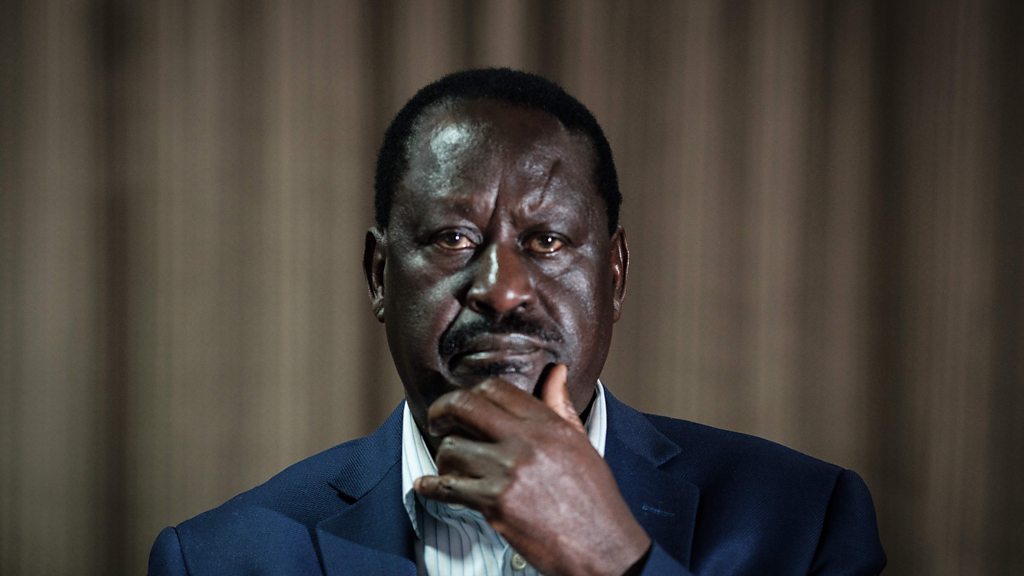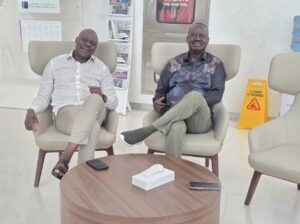Opinion
At 80, Raila’s Health Matters Are Natural, And His Privacy Sacred
Here is what critics forget: concern-trolling about an opponent’s health while hoping for their decline is perhaps the most transparent form of political cynicism.

Why Kenya Must Balance Concern with Respect for a Statesman’s Dignity
The recent frenzy surrounding Raila Odinga’s brief absence from the public eye reveals something troubling about our political culture: we have not yet learned to treat our elders with the dignity their years command, even as we demand their continued service.
At 80 years old, an age when most Kenyans are bouncing grandchildren on their knees and tending shambas in peaceful retirement, Raila Amolo Odinga remains locked in the bruising arena of high-stakes politics.
That his body occasionally demands rest should surprise no one.
That his adversaries weaponize these natural pauses is unfortunate.
That we collectively feed the speculation machine is, perhaps, our greatest failing.
Let us state what should be obvious: an octogenarian who travels internationally, maintains a punishing schedule of political engagements, and continues to shape Kenya’s trajectory will, inevitably, require medical attention from time to time.
This is not scandal. It is physiology.
When Raila underwent minor back surgery in Dubai in 2020, his family was transparent.
When he contracted COVID-19 in 2021, he informed the nation himself.
This pattern of openness has characterized his approach to health matters, a standard few political leaders maintain.
Yet each time he takes a brief respite, the rumor mills grind with particular cruelty, transforming routine rest into political theater.
The man who has weathered detention without trial, the loss of electoral victories he believed were rightfully his, and decades of political combat deserves better than to have his every medical appointment dissected for partisan advantage.
The 80-year-old leader, born January 7, 1945, has given more of himself to this nation than most citizens will ever understand.
What happened last week was instructive.
ODM was forced to issue statements refuting social media claims that Raila was unwell, clarifying that he had simply traveled to Europe, one of many international trips he has undertaken this year in pursuit of the African Union Commission chairmanship and other continental engagements.
The speed with which political opponents seized upon his absence tells us less about Raila’s health than about the desperation of those who made his temporary unavailability a crisis.
It echoes an old and unfortunate pattern: when substantive political arguments fail, attack the man himself.
But here is what critics forget: concern-trolling about an opponent’s health while hoping for their decline is perhaps the most transparent form of political cynicism.
Kenyans can see through it.
More importantly, they remember it.
Away from podiums and parliamentary chambers, Raila Odinga is a mechanical engineer who studied in communist East Germany, a father and grandfather, a man who enjoys the occasional quiet moment, luxuries increasingly rare in his relentless schedule.
His wife, Ida Odinga, has stood beside him through detentions, political defeats, and the loss of a son.
This is a family that understands sacrifice in ways most of us never will.
Those who know him personally speak of his sharp wit, his love of intellectual discourse, his ability to quote poetry and political theory with equal facility.
He is, in many ways, a 20th-century liberation figure navigating the ruthless currents of 21st-century politics, a transition that demands not just mental acuity but physical stamina that would challenge men half his age.
That he continues this work at 80 speaks either to extraordinary dedication or to Kenya’s failure to cultivate younger leadership capable of carrying his vision forward. Perhaps both are true.
Here is where we must draw a line: while Raila remains a public figure, he is entitled to medical privacy like any other citizen.
The prurient interest in his health records, the breathless speculation about every doctor’s visit, the transformation of routine medical care into political ammunition, these are not hallmarks of a mature democracy.
Yes, the public has a legitimate interest in the wellbeing of its leaders. But interest does not equal entitlement to real-time medical bulletins or the right to turn health challenges into political weapons.
As his spokesperson noted, were Raila seriously ill, he would inform the nation as he did when diagnosed with COVID-19 in 2021.
His track record suggests transparency when it matters.
The rest, the routine checkups, the recuperative rests, the medical tourism common among Kenyans of means, is his business. We diminish ourselves when we pretend otherwise.
In traditional African societies, elders are accorded respect not despite their advancing years but because of them.
We recognize that with age comes wisdom, experience, and a perspective that youth cannot yet possess.
Yet in our modern political discourse, we seem to have forgotten this basic courtesy.
If we believe Raila, or any leader his age, should step back from active politics, then make that case on its merits.
Advocate for generational transition. Champion younger leaders.
But do not couch that argument in faux concern about health, using speculation about medical matters as a cudgel for political ends.
The man has earned the right to set his own timeline, to pursue his remaining ambitions without being subjected to a collective medical examination by armchair diagnosticians on social media.
Whether he seeks the AU chairmanship, supports the current government’s broad-based approach, or shapes ODM’s future direction, these are choices he is entitled to make with the counsel of his doctors, his family, and his own conscience, not a baying mob of political opponents hoping his body will solve problems their ideas cannot.
Kenya faces genuine challenges: economic uncertainty, youth unemployment, institutional reforms that remain half-completed.
These issues demand our collective energy and attention.
Instead, we expend it on speculation about whether an 80-year-old man who traveled abroad is “really” sick or “really” well, as if either answer changes the price of unga or creates jobs for Gen-Z.
This is not to say Raila is beyond criticism.
His political decisions, his alliances, his strategies, all remain fair game. But his health is not. Not unless he chooses to make it so.
As Raila continues to monitor political developments and engage with party officials, perhaps we owe him, and ourselves, a more dignified conversation.
One that acknowledges reality: at 80, health concerns are not scandals, they are inevitabilities.
They merit compassion, not exploitation.
The measure of our political maturity is not how viciously we can attack our opponents in their moments of vulnerability, but how much humanity we can extend even to those with whom we disagree.
By this measure, last week’s spectacle suggests we still have much to learn.
Raila Odinga has given Kenya five decades of his life, much of his freedom, and countless battles fought in its name.
Whatever his future holds, whether continental leadership, continued domestic influence, or eventual retirement, he has earned the right to navigate his twilight years with dignity intact.
The question is whether Kenya is mature enough to grant it to him.
Kenya Insights allows guest blogging, if you want to be published on Kenya’s most authoritative and accurate blog, have an expose, news TIPS, story angles, human interest stories, drop us an email on [email protected] or via Telegram
-

 Grapevine1 week ago
Grapevine1 week agoAlleged Male Lover Claims His Life Is in Danger, Leaks Screenshots and Private Videos Linking SportPesa CEO Ronald Karauri
-

 Lifestyle2 weeks ago
Lifestyle2 weeks agoThe General’s Fall: From Barracks To Bankruptcy As Illness Ravages Karangi’s Memory And Empire
-

 Grapevine4 days ago
Grapevine4 days agoRussian Man’s Secret Sex Recordings Ignite Fury as Questions Mount Over Consent and Easy Pick-Ups in Nairobi
-

 Investigations2 weeks ago
Investigations2 weeks agoEpstein Files: Sultan bin Sulayem Bragged on His Closeness to President Uhuru Then His Firm DP World Controversially Won Port Construction in Kenya, Tanzania
-

 Investigations1 day ago
Investigations1 day agoMulti-Million Dollar Fraud: Three Kenyans Face US Extradition in Massive Cybercrime Conspiracy
-

 Investigations1 week ago
Investigations1 week agoEpstein’s Girlfriend Ghislaine Maxwell Frequently Visited Kenya As Files Reveal Local Secret Links With The Underage Sex Trafficking Ring
-

 News2 weeks ago
News2 weeks agoState Agency Exposes Five Top Names Linked To Poor Building Approvals In Nairobi, Recommends Dismissal After City Hall Probe
-

 Business1 week ago
Business1 week agoM-Gas Pursues Carbon Credit Billions as Koko Networks Wreckage Exposes Market’s Dark Underbelly

















